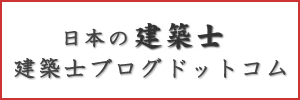No. 39: 伝統的マーケティング手法の転換期 (January 12, 2010)
旅行代理店が店舗統廃合でコストを削減し、ネット事業を強化している。JTBも近畿日本ツーリストも店舗リストラの真っ最中である。景気の停滞とインターネット予約へのシフトで、店頭販売が悪化したのが原因である。この動きは、消費者に、より広範囲な商品選択の自由を提供することが必要になったという視点から見れば、スーパーマーケットにおけるプライベート・ブランド商品の台頭と同じと考えることができる。つまり、流通業者にマージンを払うかわりに、自分が求める商品を、少しでも安く手に入れたいと考える消費者が増えているのに、それに対応する努力を怠ったメーカーと流通業者の怠慢ともいえる。もう、商品を山積みして、信じられないような値引きをして売る時代ではない。メーカーと流通業者主導の、伝統的マーケティング手法の転換期ともいえる。時代は、細分化した商品を、標的とする消費者に、ピンポイントにマーケティングする時代になっている。 (Written by Shigeo Sunahara of CBC, Inc.)
No. 39: Turning point of the traditional marketing approach (January 12, 2010)
Travel agencies are busily integrating their shops for cost reduction and trying to increase sales via the Internet. JTB and Kinki Nippon Tourist are in the middle of reorganizing their shops. Over-the-counter sales of travel products decreased because of the current stagnant economic condition and increasing sales via the Internet. The dwindling over-the-counter sales of travel products can be seen as the same trend of increasing sales of private brands in supermarkets from the viewpoint that it has become necessary to provide consumers with more options for product selection. That is, an increasing number of consumers wish to make a good purchase instead of paying lots of margin to distributors, but neither makers nor distributors have been successful in coping with this consumers’ latent desire. It is no longer a good idea to pile up products and sell them at an increasable discount under the bombastic banner saying “Big Sales” of “Last Chance.” It is the time to change the traditional marketing approach driven by makers and distributors, and it has become vital to sell segmentalized products precisely to their target consumers who have been given a wider range of selections.
No. 39: Turning point of the traditional marketing approach (January 12, 2010)
Travel agencies are busily integrating their shops for cost reduction and trying to increase sales via the Internet. JTB and Kinki Nippon Tourist are in the middle of reorganizing their shops. Over-the-counter sales of travel products decreased because of the current stagnant economic condition and increasing sales via the Internet. The dwindling over-the-counter sales of travel products can be seen as the same trend of increasing sales of private brands in supermarkets from the viewpoint that it has become necessary to provide consumers with more options for product selection. That is, an increasing number of consumers wish to make a good purchase instead of paying lots of margin to distributors, but neither makers nor distributors have been successful in coping with this consumers’ latent desire. It is no longer a good idea to pile up products and sell them at an increasable discount under the bombastic banner saying “Big Sales” of “Last Chance.” It is the time to change the traditional marketing approach driven by makers and distributors, and it has become vital to sell segmentalized products precisely to their target consumers who have been given a wider range of selections.



